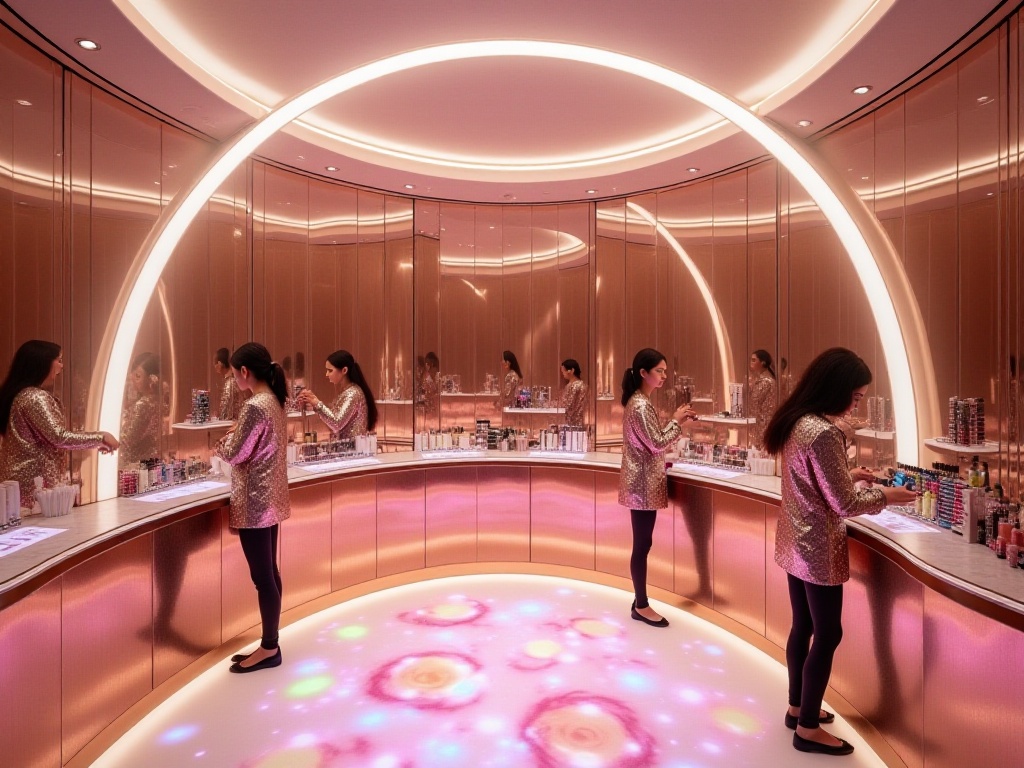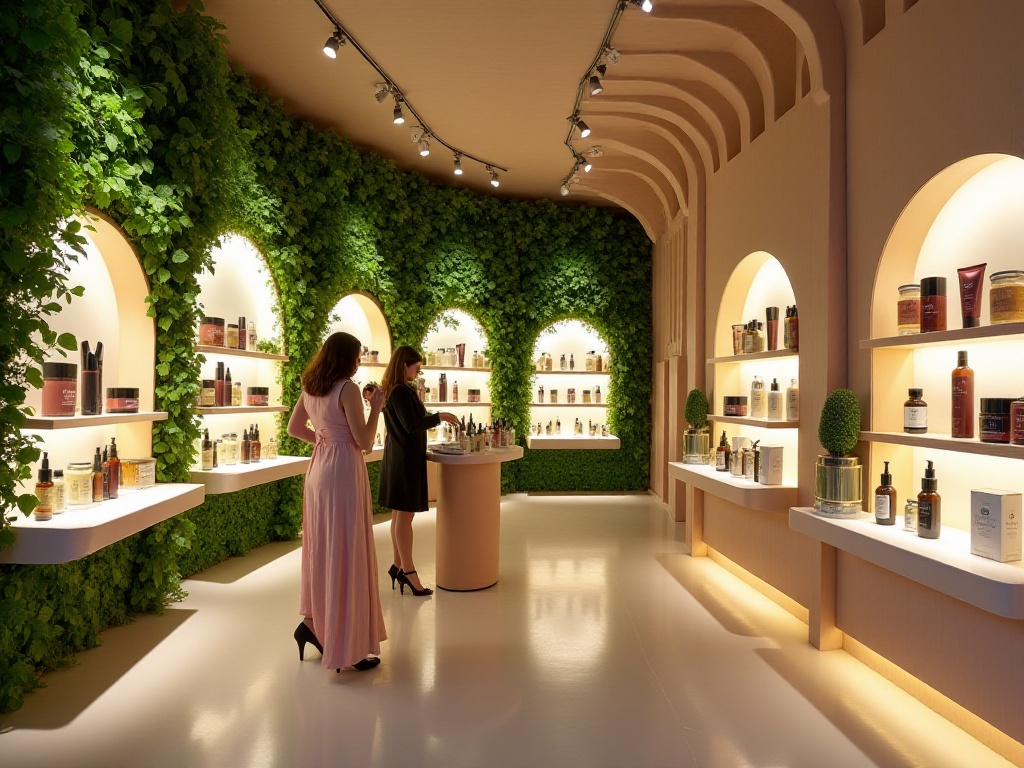Introduction
Recently, I've noticed more and more of my girlfriends are paying attention to the concept of "internal and external beauty maintenance." As a long-time beauty industry veteran, I deeply feel that simply applying products to our face no longer satisfies our pursuit of beauty. Today, I'm going to share with you all about beauty nutrition, a super informative topic, and I'm going to share all my years of experience with you!
Nutritional Crisis
Today's life pace is incredible, with daily takeout meals and late-night gaming becoming the norm. Don't think these small things don't matter - they're secretly destroying your looks. The latest nutritional survey data is shocking: over 65% of urban women have nutritional imbalances. Vitamin D, iron, and calcium deficiencies have become common problems among urban women.
Think about it - we're busy working all day, trying to sleep in a bit longer in the morning, just grabbing a piece of bread before heading out. At lunch, we order takeout to keep up with work deadlines. After working overtime and getting home, we're too lazy to cook and just make do with whatever's convenient. How can nutrition keep up with this lifestyle?
I used to be like this, looking in the mirror every day and feeling that my complexion was poor and my skin was dull. Later I realized it was because my nutrition couldn't keep up! Skin is our body's largest organ, and it needs comprehensive, balanced nutritional support. Lacking certain key nutrients not only affects skin condition but also leads to various sub-health issues.

Nutrition Plan
When many girls hear about nutritional supplementation, their first reaction is to stock up on vitamin pills. But sisters, nutritional supplementation isn't that simple. I personally highly recommend professional nutritional supplements like VITAVORE. Why? Because their formulations are more scientific and targeted.
However, I must remind everyone that blindly taking supplements is dangerous. I suggest getting a comprehensive nutritional assessment first to know exactly what you're lacking. Last year, I had a professional test done and found I was severely deficient in vitamin D and iron. No wonder I always felt tired and my skin lacked luster. Only when you know the problem can you treat it effectively.
There are numerous nutritional supplements on the market now, but not all products are suitable for you. When choosing nutritional supplements, pay attention to these points: First, always buy products through legitimate channels; second, choose appropriate dosages based on your actual situation; finally, supplement intake should be regular, not on and off.

The Collagen Code
When it comes to beauty nutrition, collagen is absolutely crucial. Did you know that collagen makes up 75% of our skin composition? But as we age, the collagen in our bodies gradually depletes, losing about 1% each year. That's why many people's skin condition starts to decline after age 25.
I used to be particularly confused about why my skin elasticity was getting worse and fine lines were becoming more visible. It turns out collagen was the culprit! But relying solely on topical products isn't enough - we need to supplement collagen internally. There are many collagen products on the market, available in powder, liquid, capsule, and other forms.
But supplementing collagen also requires proper methods. First, it's best to choose small-molecule collagen because it has higher absorption rates; second, it's recommended to take it at night because that's the golden time for body repair; finally, long-term use is necessary for noticeable results.

Nutrition Checklist
For good skin, these nutrients are truly essential. Let's first talk about the vitamin family. Vitamin C can promote collagen synthesis, not only making skin firmer but also brightening complexion. I eat vitamin C-rich fruits every day, such as kiwi and oranges.
Vitamin E is a natural antioxidant that can fight free radicals and delay aging. Nuts contain abundant vitamin E, and I often keep walnuts and almonds as snacks in the office. Vitamin A promotes skin metabolism and helps maintain healthy skin. Orange and yellow vegetables like carrots and pumpkins contain rich beta-carotene, which can convert to vitamin A.
Regarding minerals, zinc and selenium are also important guardians of skin health. Zinc can promote wound healing and improve acne problems; selenium has antioxidant properties and can protect skin from environmental damage. Seafood, lean meat, and eggs contain abundant zinc and selenium.
Proteins and amino acids are the "building materials" of skin. You need at least 1.2-1.5g of protein per kilogram of body weight daily. For a 50kg woman, that means at least 60-75g of protein daily. This amount may seem high, but it's completely achievable through proper meal planning.

Supplementation Advice
Besides the nutrients mentioned above, dietary fiber, healthy fats (especially omega-3), and adequate water intake are equally important. Drinking at least 8 glasses of water daily isn't just a saying - it's a basic requirement for maintaining moisturized skin.
I suggest keeping a water bottle nearby as a constant reminder to drink water. Many smart water bottles now can remind you to hydrate regularly, which is very practical. Also, don't wait until you're thirsty to drink water, because by the time you feel thirsty, your body is already slightly dehydrated.
Speaking of healthy fats, many people fear fat when they hear about it. Actually, appropriate amounts of healthy fats are very important for skin. Omega-3 fatty acids can help maintain skin barrier function and reduce inflammation. Deep-sea fish, nuts, and flaxseeds all contain rich omega-3 fatty acids.
Dietary fiber is also essential as it helps eliminate toxins from the body, indirectly improving skin condition. I drink a mixed fruit and vegetable juice every morning, which provides both vitamins and adequate dietary fiber.

Product Combinations
After discussing nutritional supplements, let's talk about skincare product selection. Beauty products now increasingly emphasize multi-functionality, such as foundation with added nutrients and lipsticks with skincare benefits. These products not only make you more beautiful but also care for your skin simultaneously - truly killing two birds with one stone.
When choosing brands, don't be fooled by price. While luxury brands like YSL Beauty certainly have their merits, affordable brands like Beauty Creations and Revolution Beauty are also worth considering. Especially since they all emphasize cruelty-free certification, which is an important trend in modern beauty brands.
My advice is to choose products according to your budget. Expensive doesn't necessarily mean suitable for you, and cheap doesn't necessarily mean bad. The key is to understand product ingredients and choose what's suitable for yourself. For example, if you have sensitive skin, choose gentle, non-irritating products; if you have oily skin, choose products with good oil control.
Final Thoughts
Through years of experience, I increasingly feel that beauty truly requires "internal and external maintenance." Relying solely on topical products or nutritional supplements isn't enough for perfection - only by combining both can you achieve optimal results.
Taking myself as an example, since I started paying attention to nutritional supplements combined with appropriate skincare products, my skin condition has indeed improved significantly. Not only has my complexion improved, but I also have fewer breakouts. So, beauty isn't achieved overnight - it requires long-term persistence and scientific methods.
Finally, I want to say that everyone's constitution and needs are different, don't blindly follow trends. Finding suitable nutritional supplement plans and skincare methods for yourself is most important. I hope through this article, I can help everyone better understand beauty nutrition and find their own path to beauty.
What are your thoughts on beauty nutrition now? Feel free to share your experiences in the comments. Next time we can have a more in-depth discussion about specific nutrients. For example, the different forms and dosages of vitamin C and their effects on skin, or techniques for choosing collagen supplements.







